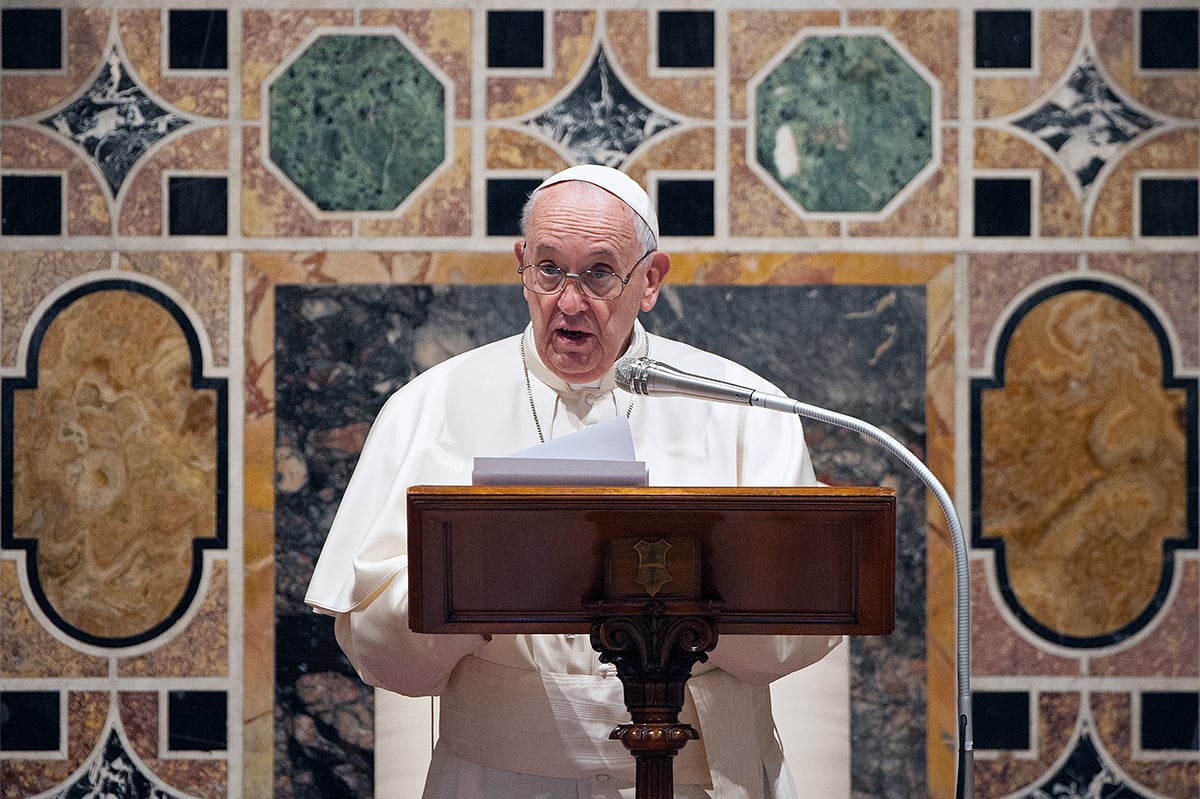In a groundbreaking move, Pope Francis is poised to address the Group of Seven (G7) nations’ leaders on the subject of artificial intelligence (AI) during their summit in the picturesque Puglia region of southern Italy. This historic event marks the first instance where a pontiff will partake in high-level discussions regarding AI.
The pontiff’s interest in this topic was piqued by a viral “deep fake” image depicting him in a trendy white puffer jacket, generated using AI technology. Recognizing the potential risks associated with AI, Pope Francis is committed to ensuring its development remains aligned with human values and does not result in adverse consequences.
Drawing from his background as a former chemist, Pope Francis embraces technological progress, including AI, for the opportunities it presents. Nevertheless, he remains acutely mindful of the dangers posed by unbridled technological advancement. In a statement released last year, he warned against the rise of a “technological dictatorship” and voiced concerns about AI-driven weapons systems, surveillance states, and electoral manipulation.
To address these apprehensions, the Vatican has been actively advocating for an ethical framework to govern the development and application of AI. Initiatives such as the “Rome Call for AI Ethics,” championed by the Pontifical Academy for Life, emphasize principles such as transparency, inclusivity, accountability, and fairness. This declaration has garnered support from prominent tech firms, governments, and religious figures worldwide.
During the G7 summit, Pope Francis is expected to urge global leaders to collaborate on regulating AI to prevent harmful practices. He has previously advocated for a “binding international treaty” to promote ethical AI advancement. Notably, the European Union has already enacted legislation to regulate AI, while bipartisan efforts in the United States suggest growing momentum for federal oversight.
Pope Francis’ decision to engage in the AI discourse mirrors his broader vision of the Church’s role in contemporary affairs. He views AI as an integral component of the “epochal change” unfolding in the 21st century and believes the Church must lead discussions on its ethical ramifications.
Father Paolo Benanti, a Franciscan friar and AI specialist collaborating with the Vatican, underscores Pope Francis’ emphasis on the societal implications of AI and its effects on global harmony. He highlights the pope’s commitment to addressing inequalities exacerbated by technological progress and ensuring equitable access to technology, especially in developing regions.
Archbishop Vincenzo Paglia of the Pontifical Academy for Life stresses the necessity of international regulation to mitigate AI misuse and manipulation. He asserts that only through concerted global efforts can AI be utilized for sustainable development and the advancement of humanity.
As the current holder of the G7 presidency, Italy has taken measures to address AI-related concerns, including a temporary ban on AI chatbots due to privacy issues. Prime Minister Giorgia Meloni welcomes Pope Francis’ involvement in the summit, emphasizing the significance of ethical considerations in AI development.
Pope Francis’ presence at the G7 summit underscores his dedication to engaging with global leaders on critical issues confronting humanity. His advocacy for ethical AI epitomizes the Church’s enduring commitment to promoting the common good and ensuring that technological progress serves humanity’s best interests. As the summit unfolds, all eyes will be on Pope Francis as he leaves an indelible mark on the AI discourse.







